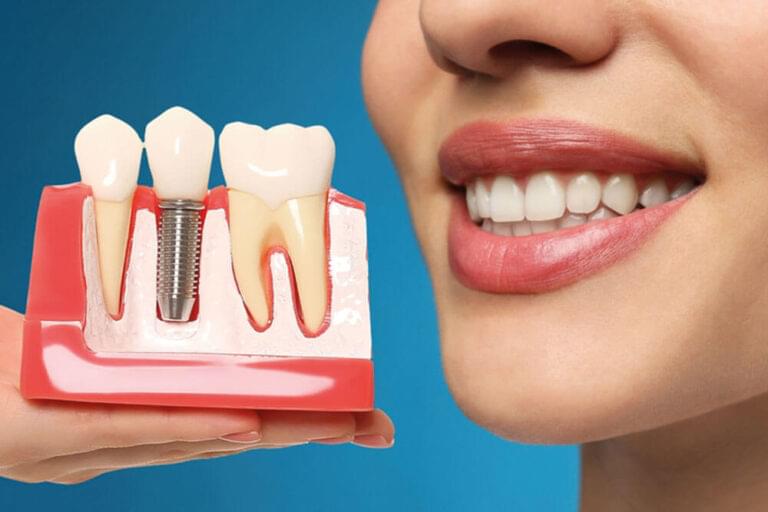Dental implant surgery is popular and can feel like a miracle cure for people with damaged or missing teeth. Under the care of a qualified oral surgeon, dental implant surgery is a low-risk, safe, effective procedure. According to the American Association of Oral and Maxillofacial Surgeons (AAOMS), dental implant surgery has a 95% success rate.
Implant treatment has side effects like any other surgical procedure. However, the side effects are a natural part of the recovery process and are typically not severe.
If you are in need of an implant and have reservations about how the procedure will affect you, stay informed to help minimize any risks. Below are five common side effects of dental implant surgery.
1. Minor Bleeding
Some minor bleeding on the implant site is normal after dental implant surgery, and patients may notice blood in their saliva.
2. Infection
An infection may occur at an implant site after the surgery. If left untreated, a small infection can grow into peri-implantitis a destructive inflammatory disease affecting the area around dental implants. However, the condition is more likely to develop with smokers and diabetic patients with gum disease.
Contact a periodontist immediately when you notice redness, tenderness of your gum tissue, or bleeding while brushing. Early treatment of infections can help prevent major problems with your implant.
Treatment for peri-implantitis depends on the severity of the infection and the patient’s lifestyle. Dentists often prescribe antibiotics to help combat mild infections.
3. Nerve or Tissue Damage
After implant placement, you may feel some pain, discomfort, and a tingling sensation in your teeth and gums.
An experienced periodontist will greatly reduce the occurrence of nerve damage. A qualified surgeon takes time to study the X-rays of your jawbone before choosing an optimal implant site.
4. Swelling
As with any surgical procedure, swelling is common even for dental implant patients. You will notice that the area around the treatment site and gum line may get swollen for 3 to 10 days. The swelling may come with gum discoloration.
In some cases, the swelling may affect parts of your face at the surgery site. Keep in mind that this is part of the recovery process, and the swelling normally dissipates on its own.
To help manage the swelling, apply a cold compress or ice pack to the affected part of your face.
5. Tooth and Gum Sensitivity
After the dental implant procedure, you may notice that the area around the placement becomes tender, resulting in inflammation. In some cases, you may undergo gum recession in which the margin of the gum tissue pulls back, exposing the implant.
These gum issues, however, do abate as your implant site heals. Meanwhile, eat and drink lukewarm foods and beverages to avoid aggravating the sensitive areas.
While the side effects above are common, you should report them immediately and talk about them openly with your dentist. In this regard, a routine dental checkup is crucial in the initial weeks after an implant procedure. A checkup can help with early detection of any oral issues and could potentially prevent further complications.
If you are contemplating the prospects of a dental implant, contact us for a consultation appointment.










